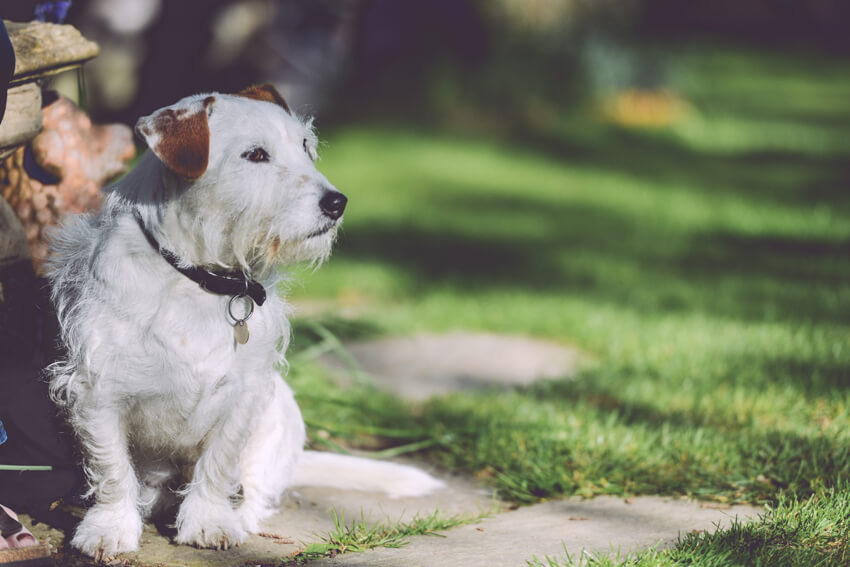5 Ways to Care for your Senior Dog in His Golden Years

Your faithful companion has been by your side throughout the years, providing unconditional love, support and compassion during your roughest times. It’s difficult to imagine life without your canine best friend but, like humans, dogs grow old, slow down and eventually cross the rainbow bridge. Because you love your dog so much, you want to make your dog’s senior years as happy as possible and care for your senior dog’s age-related needs. Here are some ways you can ensure your canine soul mate transitions from middle-age to old-age easily and comfortably.
Keep Your Home Organized and Free of Ground Clutter
Age-related diseases commonly affecting older dogs include arthritis, cataracts, hearing loss and cognitive issues. To make it easier and less stressful for your senior dog to navigate his home, always keep his food and water bowl in the same place, and don’t block pathways in the home with clutter. If your dog has always been allowed to sit on beds and couches, purchase a set of mini-steps and place them next to his favorite sleeping spots. Mini-steps are especially helpful for dogs with arthritis or joint problems that restrict his range of motion. Senior dogs may exhibit cognitive problems similar to those experienced by Alzheimer’s patients. Older dogs with diminished brain functioning may sometimes appear disoriented in their own home or backyard, seem slow to recognize people they know or just walk away when you are petting them. Dogs that ignore verbal cues may have reduced hearing or can’t process the sound of your words as quickly as they used to. Be patient, understanding and gentle with your older dog when these physical and mental difficulties start affecting him. As you care for your senior dog, he’ll genuinely love you for it.
Go Sweater Shopping for Your Senior Dog
Young and middle-aged dogs have sustained body temperatures of around 102 degrees Fahrenheit. However, older dogs (and humans) have reduced metabolism rates that make it harder for their bodies to stay warm. In addition, older dogs’ skin gets thinner, and they may not have the quality of fur they had as young dogs. If you notice your senior dog shivering or curling up in a tight ball when asleep, he might benefit from wearing a doggie sweater. On the other hand, if shivering is accompanied by whining, lack of appetite and aggression, your dog needs to see a vet immediately. These symptoms may indicate your dog is in pain.
Increase Exercise Time but Minimize the Intensity
One of the best ways to keep your senior dog healthy and happy is to take him for short, leisurely walks more frequently. Let him stop and sniff anything he wants to sniff. Watch him closely on warmer days for signs of heat exhaustion, and sit on a bench to let him rest awhile at your feet so he avoids overexertion. Enjoy the one-on-one time you have with your dog on these slow walks and know that he loves you for taking the time to be with him.
Care for Your Senior Dog with a “Senior Diet”
Make sure the food you are feeding your older dog contains adequate amounts of easily-digestible protein to maintain his muscle mass and help prevent weight gain. A senior canine diet should also contain an omega-6 fatty acid called gamma-linoleic acid (GLA), which contributes to coat and skin health. Although your dog’s liver produces GLA, the ability to produce enough diminishes as he ages. In addition, the ASPCA recommends a senior diet for dogs provides fructooligosaccharides (FOS), a carbohydrate with prebiotic qualities that helps maintain your dog’s gastrointestinal health.
Enhance Your Dog’s Senior Diet With Kauffman’s® Supplements
Rich in prebiotic and probiotic ingredients, Fortitude® Canine health supplements for dogs may help your older dog remain healthy by improving the functioning of his GI tract and boosting his diet with essential vitamins and minerals. All of our products are made in the USA, in a facility certified by the American Feed Industry Association’s Safe Feed/Safe Food Certification Program.
